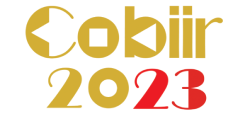Corporate branding, identity, image and reputation have become increasingly important in academic research and management practice. The growth has been driven in large part by the prodigious, prestigious research and publication output of Professor TC Melewar and colleagues over a couple of decades. From early work on corporate visual identity published in world-leading journals such as the Journal of International Business Studies, as far back as the previous millennium, TC’s work has led the development of scales for corporate visual identity, progressing to a research agenda encompassing all aspects of corporate branding, identity, image and reputation across a wide spectrum of traditional and new channels. The leadership of the field has been assured through papers published in key journals such as Corporate Reputation Review and globalisation applications in publications such as the Journal of Global Marketing.
Over the ensuing decades, Professor Melewar has defined, broadened and led this field.
His research published in the European Journal of Marketing in 2006 demonstrated that there is a considerable divergence in opinions among practitioners concerning the fundamental components of corporate identity. Over the following decade TC’s research has made great strides in unifying the concepts.
Professor Melewar’s research further broke new ground by going beyond the role that visual identity plays in the corporate identity and corporate image literature to encompass non-visual cues. TC’s holistic perspective incorporates all sensory stimuli based on the five human senses (i.e. seeing, hearing, smelling, tasting and touching), proposing the construct of corporate sensory identity. Corporate sensory identity incorporates these five sensory dimensions in a consistent way that reflects all senses by which an organisation can convey its identity to all of its internal and external stakeholders.
Other research published in papers in the Journal of Business Research in 2014 links corporate logo, image, and reputation.
The main antecedents of a favourable corporate logo are corporate name, design and typeface. Logo enhances the corporate image, attitude towards advertisements, recognizability, familiarity, and corporate reputation. Further studies published from 2014 onwards extend understanding of corporate impression formation to online communities and corporate website favourability.
 In all, Professor TC Melewar’s 160+ journal publications, 12,000 citations and h-index of 60 thus embrace and indicate the widest scope of corporate branding, identity, image and reputation concepts, antecedents, mediators, moderators and consequences, in contexts ranging from finance to education, technology and pharmaceuticals. By its very nature, though, this body of work poses many future research questions. These include, for example, what are the effects of antecedents such as corporate communication, design, culture, behaviour, strategy, structure, organisation, leadership, and financial and social performance on consequences including customer loyalty, trust and commitment across the whole range of possible contexts. This colloquium thus aims to bring together researchers addressing research areas such as these in determining what and how customers seek to engage with an organisation and its offerings.
In all, Professor TC Melewar’s 160+ journal publications, 12,000 citations and h-index of 60 thus embrace and indicate the widest scope of corporate branding, identity, image and reputation concepts, antecedents, mediators, moderators and consequences, in contexts ranging from finance to education, technology and pharmaceuticals. By its very nature, though, this body of work poses many future research questions. These include, for example, what are the effects of antecedents such as corporate communication, design, culture, behaviour, strategy, structure, organisation, leadership, and financial and social performance on consequences including customer loyalty, trust and commitment across the whole range of possible contexts. This colloquium thus aims to bring together researchers addressing research areas such as these in determining what and how customers seek to engage with an organisation and its offerings.
Customers engage with brands through many channels including word-of-mouth, social networks and mobile apps. As the economic environment becomes more customer-driven, corporate and brand identity becomes essential aspects of organisation strategy driven by customer demands for value co-creation. Hence brands – corporate, products, service – today are collectively defined by their customers, based on personal or business requirements for economic, emotional or experiential value, deriving from personal experiences and word-of-mouth.
The themes of this Colloquium are therefore to be interpreted broadly. The Colloquium acts as a forum for examining current and future trends in corporate branding, identity, image and reputation. Submissions of papers are sought that engage with literature and ideas from corporate (external) and organisation (internal) identity perspectives as they relate to brand management, corporate reputation, marketing communications, social media, smart technology, and experiential and sensory marketing. Papers that incorporate current thinking and developments by both academics and practitioners, combine a comprehensive theoretical foundation with practical insights, and provide insights to assist managers in their daily decision-making and long-term brand decisions are especially welcomed. Papers can either be empirical, conceptual or practical. Papers can also adopt a multidisciplinary approach or can be guided by different perspectives. Only extended abstracts will be published in conference proceedings.
